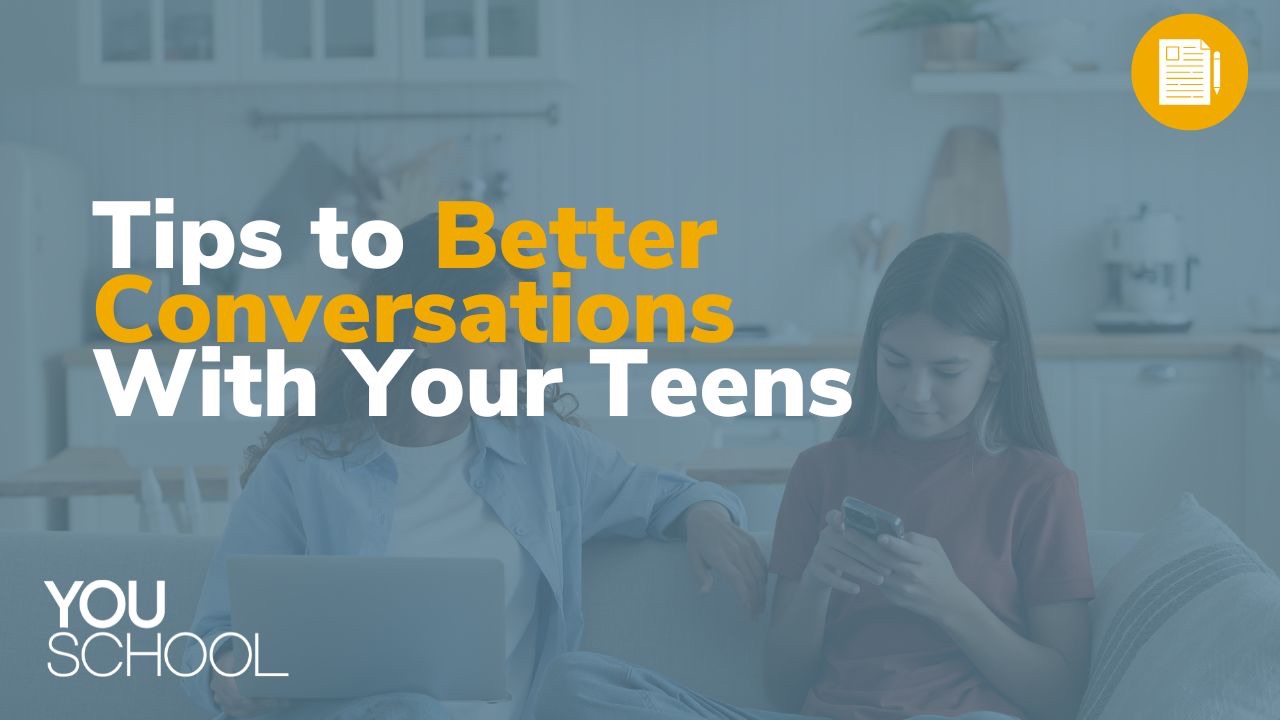Tips to Better Conversations With Teens

Sometimes it’s pretty convenient to skip a conversation with our kids. I mean, they aren’t typically known for their riveting conversational skills, right? Sometimes it’s easier to just crank the music up, make a call, or listen to a podcast. Sometimes it’s less friction to just let them eat dinner in front of the TV or with their phones in hand.
But ultimately, we love them. And we want to connect with them. We want to understand their world and what they’re going through, and we want to support them. But how can we if we can’t communicate?
That’s why it’s so crucial to learn how to engage more effectively with them. Here are YouSchool’s top tips to have better chats with the teenagers in your world:
- Timing Matters: Respect their preferred timing for conversations. Choose moments when they're more relaxed and receptive to talking.
- Skip the Lectures: After they share, avoid jumping into lectures or judgment. Let them know you're there to listen and understand.
- Curiosity Wins: Show genuine interest in their world. Ask specific questions about their day or interests to spark meaningful conversations.
- Share Your Stories: Share your own stories to create a connection. It encourages them to listen and feel more comfortable opening up.
- Understand First: Prioritize understanding over solving. Listen attentively to truly grasp their thoughts and feelings.
- Validate Their Perspective: Show empathy and validate their emotions and viewpoint. It helps them feel heard and understood.
Building better conversations with your teenagers is a journey that takes patience and effort, but the rewards are worth it. By respecting their timing, avoiding judgment, and fostering curiosity, you create an environment where meaningful exchanges can thrive. Sharing your own experiences, seeking understanding, and validating their thoughts and feelings further strengthen the connection. Remember, these steps not only improve your communication but also deepen your relationship, allowing you to support and guide them through the challenges and triumphs of their teenage years.
